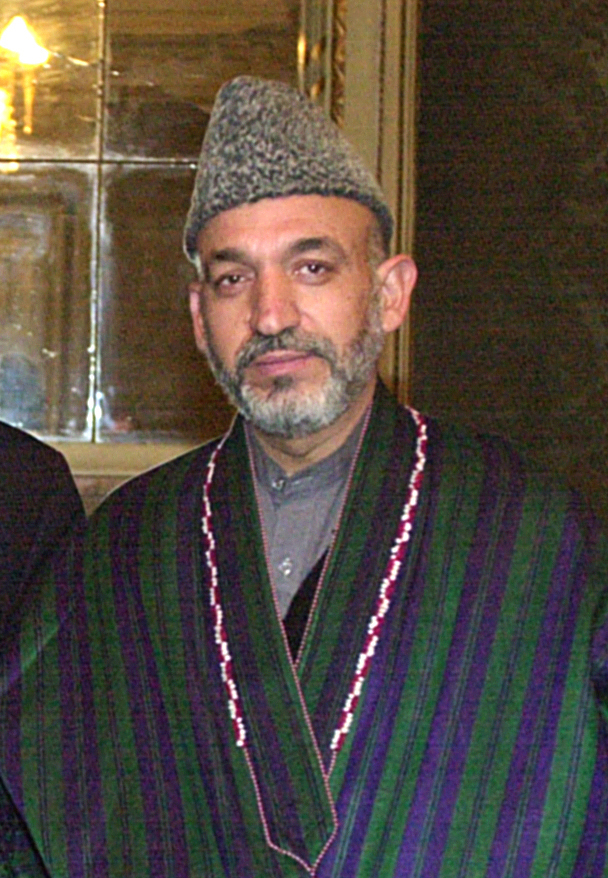Karzai defends Afghan family law amid international outcries
 Kabul - Afghan President Hamid Karzai defended Saturday a new family law for the country's Shiite minority, saying the concerns expressed by the international community over its anti-women's rights articles were based on poor translation or "misinterpretation."
Kabul - Afghan President Hamid Karzai defended Saturday a new family law for the country's Shiite minority, saying the concerns expressed by the international community over its anti-women's rights articles were based on poor translation or "misinterpretation."
The new law, which was recently passed by parliament and signed by Karzai, and is meant to legalize the Shiite family law, has sparked outcries among some Afghan women's rights activists and the international community.
Critics said that the new law barred women from leaving their houses without the permission of their husbands and that it legalized "rape" within marriage, since under the new law women do not have the rights to refuse sex.
Several western countries also expressed their concerns and asked Karzai to amend the law.
The US State Department asked Karzai to review and correct provisions that restrict women's rights, while Canadian Foreign Affairs Minister Lawrence Cannon called the law "extremely alarming and troublesome" for NATO allies."
The United Nations' agency for women, UNIFEM, said in a statement that it remained concerned and called for the amendments of the law.
"We understand the concerns of our allies in the international community," Karzai told journalists in a press conference in his president palace on Saturday.
"Those concerns maybe out of inappropriate or not so good translation of the law or misinterpretation of this," he added.
The 130th article of the law says that women can go out of their houses for "legal purposes," Karzai said, adding, "So this article does not prevent women from going out and what is reported in western media is not true."
Karzai said that he had asked the minister of justice to "study the whole law, every item of it very, very carefully and if there is anything that is of concern to us then we will definitely take action in consultation with our Ulema (Islamic clerics) and send it back to parliament."
A leading Shiite cleric, Hayatullah Shaikh Mohammad Asif Mohsini, also defended the law and said, "The media criticize the point that a wife can not refuse sex. It is not true - she definitely can with lawful or logical excuses or by asking permission of her husband."
He complained that the demands for a pure Shiite law, which included a separate family court, different from that of Sunni majority and short-term marriage, which permits a marriage-contract for as short as one night, were not accepted by the parliament.
Shiites make up around 20 per cent of Afghanistan's population and an Afghan female lawmaker believed that by passing law, Karzai wanted to gain the support of Shiites in his re-election bid in the next presidential elections slated for August 20.
"We all know that the election is coming and Karzai just accepted this demand of Shiite clerics to win their support in the next presidential election," Shinkai Karokhail, a female member of lower house of parliament said.
Unlike in case of other laws that the MPs read each article and vote for them, the Shiite Family Law was approved as a package, Karokhail said, adding, "It was the only law that was approved as a package."
But Karzai at Saturday's media briefing hinted that the outcry by the media came on the same day when he was attending an international conference on future of Afghanistan in The Hague, Netherlands.
"We will see if that was a coincidence or if they had some objectives as the article was published on the same day when there was a conference in The Hague," the president said.
Karzai, once the darling of the West, is believed to be no longer assured of the unwavering support from the international community.
Finding him weak and incompetent to tackle endemic administrative corruption and drug production, Afghanistan's main supporters, including the United States, are said to be looking for an alternative to replace Karzai in the next elections.
In return, Karzai says that his relations with his government's western patrons soured after he repeatedly criticized the NATO-led military forces for their "indiscriminate" operations that resulted in mounting civilian casualties. (dpa)